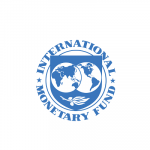Islamabad: Pakistan’s mining sector has the potential to boost annual revenues from the current USD 2 billion to USD 6-8 billion by 2030, provided the country leverages its extensive mineral reserves, according to Shamsuddin A Shaikh, CEO of National Resources Limited (NRL).
Speaking at the Natural Resources & Energy Summit 2025 on Wednesday, Shaikh said Pakistan accounts for just 0.15% of global mineral output and contributes only 2-3% to the national GDP, despite being located on one of the world’s richest mineral belts. “Out of 92 known minerals, nearly 90% remain unexplored,” he noted, adding that the country must act swiftly or risk losing opportunities to external players.
Read: KP to auction 6 gold mining blocks in Kohat
Shaikh highlighted key projects currently underway, including Reko Diq, which he said could generate USD 4-5 billion annually, Siah Diq with an estimated USD 1-2 billion potential, and Thar coal expansion worth USD 200 million. Additional projects in barite, lead, and zinc are projected to add another USD 100 million. Collectively, these developments are expected to contribute billions of dollars in annual revenue within five years. Beyond 2030, further copper and gold exploration in the Chagai region could add USD 5-10 billion annually.
He emphasised that responsible mining could deliver both economic and social benefits by creating jobs, housing, health, and education opportunities in underdeveloped regions. “Mining is not just about extracting minerals — it is about building communities, eradicating poverty and transforming neglected areas into growth engines for Pakistan,” Shaikh said.
Other speakers at the summit echoed this vision. Hassan R Muhammadi, founder and director of Fidelity Insurance Brokers Pvt Ltd, described the mining and energy sectors as “engines of growth that can create jobs, enhance energy security and earn foreign exchange.” He said the insurance sector is prepared to support investors with risk solutions that encourage both foreign and local participation.
Khurram Ali Khan, CEO of Fidelity Insurance, underscored the importance of risk management, noting that “in volatile environments, insurance provides the safety net that keeps projects moving and investors confident.”
Meanwhile, Muhammad Sohail Tabba, chairperson of Lucky Cement and Lucky Core Industries, pointed to the socio-economic impact of mining. “Pakistan’s rural provinces hold immense untapped potential. Developing these resources, while simultaneously investing in education and capacity-building, can bring prosperity, stability and peace to entire regions,” he said.
Read: Pak ready for global Investment in mining, IT, agriculture: PM Sharif
Speakers also stressed the need for stronger governance, regulatory frameworks, and human resource development to ensure sustainable growth in the sector. They warned that inconsistent policies and climate-related risks could undermine progress, underscoring the role of technology and innovation in managing future challenges.







